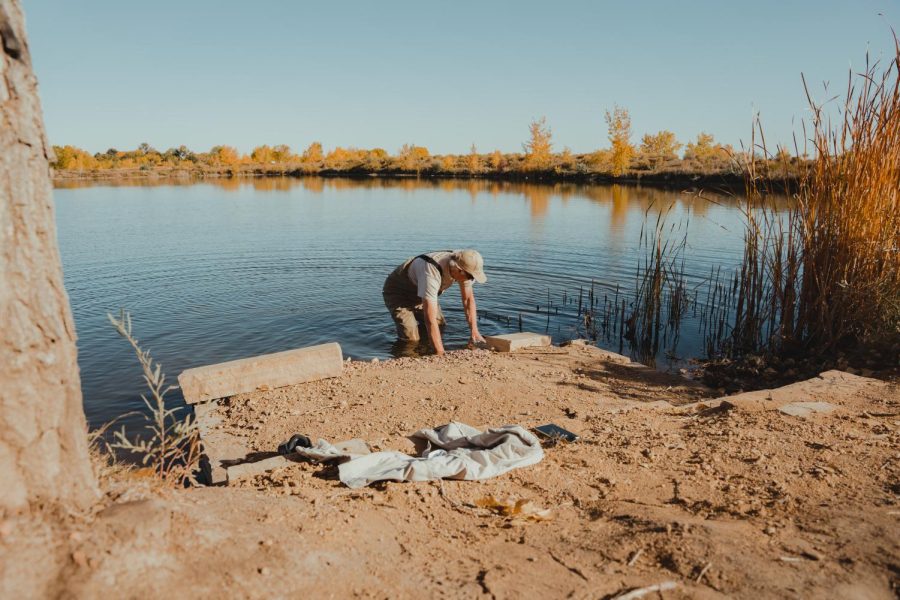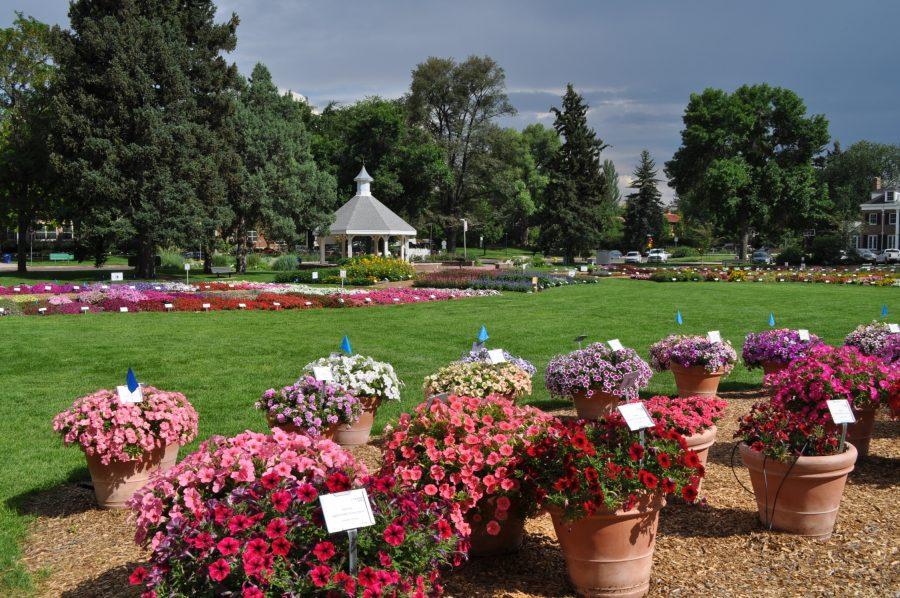Vibrant petals burgeon at the whisper of the Colorado air, the blooms of perennial and annual blossoms greet the Fort Collins community at the Colorado State University Annual Flower Trial Garden. The garden has been evaluating new plants in the Colorado seasons at CSU for decades.
In 1971, the garden blossomed at the Plant Environmental Research Center on Lake street for the first time. The purpose for this garden was to test how different plants are able to endure the harsh Colorado conditions. As the trials began, the garden saw immense expansion; by 2000 the roots of the garden were begging for a bigger space. In the spring of 2001, the first of five phases to transfer the garden to a new location was completed. By August of 2006, the garden was completely moved to Remington Street in front of the University Center for the Arts where it continues to open a beauty of different flowers to a public that can stroll among its creations.
“Colorado has a unique environment, and the environment that we have here is generally a lot of sunshine and low humidity, so we don’t get a lot of different diseases and so forth,” says James Klett, PERC director and Annual Flower Trial Garden coordinator at CSU.
Because of this rare environment, many plant companies want to test out their plants’ performance in Colorado soil. Around 25 plant companies from around the world send their products to the CSU trial gardens to be tested in the Colorado conditions. Klett and his team of research students at CSU conduct research on these plants to determine their performance in the climate.
“We evaluate on overall health of each plant and flower color/show,” says Lauryn Schriner, a graduate student who’s been working in the garden since the fall of 2018. Schriner is the coordinator for the annual trial garden this year. The annual trial garden is one of three gardens, each measuring different performances.

“The annual trials look at how ‘new’ introductions of plants to the green industry do in Colorado,” Schriner explains. “The perennial trials evaluate the ‘new’ introductions and see how they perform over two winters and three summers in Colorado. All American Selection is a separate research group that evaluates one new plant to two older varieties.”
The research conducted in these gardens give feedback to the plant companies filling the gardens with trial plants. Through this research, Klett describes, “We have found a lot of plants that are actually more azuric that take less water and take high light intensity here do very, very well. We find that some plants that generally like more moisture, more humidity, do not do as well here.”
At the end of every growing season there is an Evaluation Day and a Consumer Day in August. On Evaluation Day, Klett invites the plant companies as well as industry workers from garden centers and nurseries to the trial gardens. These individuals will evaluate the performance of the plants. In addition to Evaluation Day, the gardens also host Consumer’s Day where members of the community are invited to enjoy some refreshments and stroll along the blooming gardens with flags, marking their favorite three plants. This year Consumer’s Day will be held on August 8, 2020 from 9:00 a.m. to 12:00 p.m.
The garden is home to a beautiful assortment of plants from around the world. However, the beauty maintained and the research performed in these gardens rely on entry fees paid by the participating plant companies along with donations to stay in place. Running the research of the garden with the help of research students costs about $75,000-$85,000, according to Klett. Because of this large number, the garden relies on the companies’ entry fees for expenses.
“We’re also trying to build up an endowment that if for some reason these companies pull out, we would have dollars to still keep the garden running,” Klett says, describing precautions the garden is trying to take in order to avoid shutting down if these companies ever decide to discontinue trials with CSU.

Despite this aspect, the garden continues to be filled with gorgeous plants that have been thoroughly researched and carefully examined to provide the best information for the public. “Dr. Klett has strived to maintain and build the trial gardens to what they are today,” Schriner says. “We are growing in the number of entries every year because we have high standards to maintain these public trial gardens and release quality research reports.”
As the gardens begin to bloom this spring, members of the community are invited to stroll among the gardens and enjoy their greenery.






































